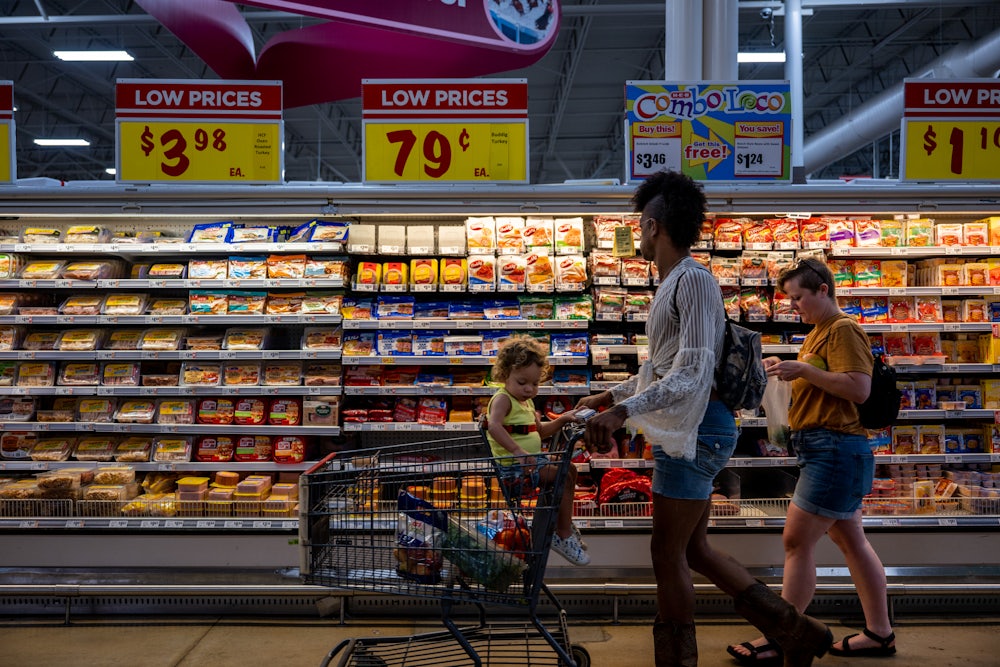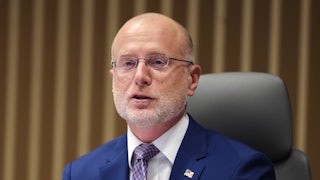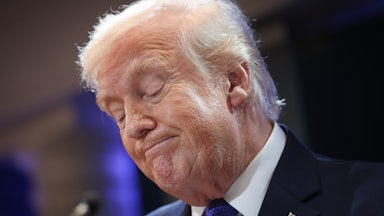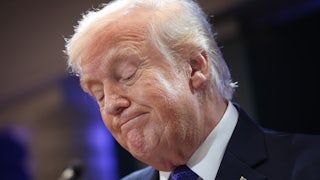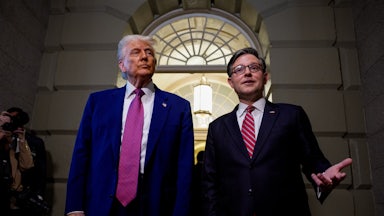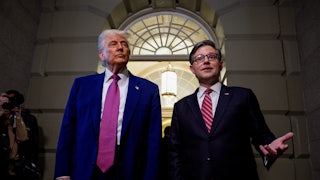The Covid pandemic provided a real-time experiment of a strengthened social safety net, in which several anti-poverty programs were bolstered and benefits increased. One such program, called Pandemic EBT, provided a voucher for families to purchase groceries while children were unable to attend school in person, helping them to obtain the nutrition they would otherwise get through free school meals and lifting millions of children out of hunger.
In late 2022, Congress approved a similar, permanent program on a bipartisan basis. Called SUN Bucks, or Summer EBT, the program begins this month and provides families with $40 per child per month in grocery benefits over the summer, or $120 in total, when they don’t have access to free lunches at school.
Thirty-seven states, five territories, and the District of Columbia will participate in the program. But 13 states, all led by Republican governors, have opted out of the program, depriving millions of low-income kids. Several of these states have also declined to expand Medicaid, increasing the burden on households too poor to afford health care or basic groceries.
SUN Bucks isn’t as generous as its pandemic-era iteration, but the Department of Agriculture nonetheless estimates that the program will reach more than 20 million children. “We always see summer as one of the hungriest times of year,” said Kelsey Boone, the senior child nutrition policy analyst at the Food Research and Action Center. “We see summer EBT as kind of filling that gap in the summer nutrition programs that only reach a fraction of the children that participate in reduced-price school meals during the school year.”
The baker’s dozen of red states that opted out are Alabama, Alaska, Florida, Georgia, Idaho, Iowa, Oklahoma, Mississippi, South Carolina, South Dakota, Texas, Utah, and Wyoming. Their governors have cited an array of reasons, including logistical difficulties, but much of the opposition appears patently ideological.
“An EBT card does nothing to promote nutrition at a time when childhood obesity has become an epidemic,” said Iowa Governor Kim Reynolds in December, referring to the debit-like card that food stamp recipients use to purchase groceries. A Florida state official told WFSU News that “we anticipate that our state’s full approach to serving children will continue to be successful this year without any additional federal programs that inherently always come with some federal strings attached.”
A spokesperson for Mississippi Governor Tate Reeves insisted that Summer EBT amounted to “attempts to expand the welfare state,” adding that if “Democrats in Washington had their way, Americans would still be locked down, subjected to Covid vaccine and mask mandates, and welfare rolls would’ve exploded.” (Nebraska Governor Jim Pillen, who initially said his state would not participate because he did not “believe in welfare,” reversed course in February after speaking to low-income children.)
Some governors cited the cost of Summer EBT as prohibitive; a spokesperson for South Dakota Governor Kristi Noem said in January that “federal money often comes with strings attached, and more of it is often not a good thing.” The federal government will cover the cost of the program, but states must provide the funds for half of the operational costs. Others argued that it is redundant, pointing to state summer meal programs. Oklahoma Governor Kevin Stitt rejected the $60 million in federal funding, saying he was “satisfied that kids won’t be going hungry in the summertime.” (He told KJRH News in January, “We gave over $20 million over the last couple of years to different food banks.”)
But Chris Bernard, the president and CEO of Hunger Free Oklahoma, noted that only 6 percent of eligible children in the state participate in summer meal programs. Moreover, he argued, the existing summer food programs administered by the state are insufficient on their own. “These programs are meant to complement each other, not be exclusive,” Bernard said.
Even though Stitt opted out of Summer EBT, several Native tribes in the state will be participating and will provide the benefits to Native and non-Native children living in tribal territories. As much of the state is composed of tribal lands, this means that a large portion of Oklahoma’s population of low-income children will be served. However, this will also result in piecemeal application of the benefits across the state. Children living in Oklahoma’s second-largest city, Tulsa, will be eligible to receive the benefits through the Muscogee Nation, but families in the state’s largest metropolitan area, Oklahoma City, will not be able to obtain Summer EBT.
“You could be in a school district that’s bordering one of these other territories but not in it, and you’re going to miss out. But even your sibling could attend the other school district, and they’ll get the benefit,” Bernard said. “It makes for confusion. It makes for an unnecessary absence of resources for families.”
Neighboring Texas, the second-largest state in the country, with 3.8 million children eligible for the program, also opted out of Summer EBT; however, the reasoning seemed more logistical than political. Texas’s Health and Human Services Commission argued that it was given insufficient time by the U.S. Department of Agriculture to get the program up and running. Moreover, the state is currently busy unenrolling people from Medicaid after the federal government removed its pandemic-era requirements for continuous coverage.
As a result, the charitable sector may bear much of the brunt of keeping low-income families fed over the summer. For example, the Houston Food Bank operates a summer meal program at around 200 sites in the Houston area, but it’s expensive to administer and reaches a relatively low percentage of children who need it.
“For years, we’ve argued that, yes, we’re happy to do this, but we do not think this is the best solution. The best solution is for those families just to be able to buy the food they need less expensively at supermarkets,” said Brian Greene, the organization’s president and CEO. He added that food banks are “not meeting the need to begin with,” so having to help even more families with children will further strain the charitable sector—not to mention low-income Texans themselves.
“We’ll keep doing as best we can, and it won’t be enough by a large margin. But it’s the families who are going to be taking the hit,” Greene said.
Still, even if a state doesn’t opt into Summer EBT this year, it does not preclude them from doing so in 2025. Stitt has not ruled out participating in the future, and states like Texas that dealt with administrative burdens may find those issues resolved in time for next year.
Something similar occurred with the Affordable Care Act’s Medicaid expansion, the cost of which is largely borne by the federal government. Many Democratic-led states adopted the expansion in 2014, while many red states refused it, even as research demonstrated the expansion’s health and fiscal benefits. Since 2019, six more Republican-led states have joined the club. Seven of the remaining 10 holdouts have also rejected SUN Bucks.
